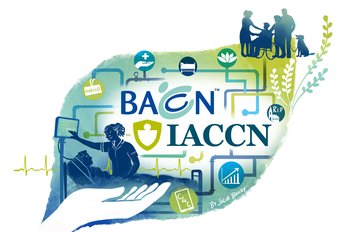Further Resources and Information
Contents |
Resources for ICU Nurses
| Resources |
Date Resource Added |
| Critical Care Digital Surge passport | 04.08.2021 |
HEE e-learning ResourcesHealth Education England have a number of programmes and resources available on their e-Learning for Healthcare hub HERE including: Intensive Care Medicine e-learning programme Health Education England e-Learning for Healthcare has worked with the Faculty of Intensive Care Medicine to develop 6 sessions for the Intensive Care Medicine e-learning programme. The sessions take approximately 20 to 30 minutes to complete and comprise the following topics:
There is also a specific COVID-19 session on decision-making surrounding escalation of critical care which is available in the Coronavirus e-learning programme. The e-Learning for Intensive Care Medicine (e-ICM) programme provides 9 modules of resources (e-learning sessions, links to open access review articles, guidelines and multiple-choice questions) covering the syllabus for training in intensive care medicine. While the resources will be particularly useful for trainees undertaking training in intensive care medicine, they will also be of interest to anyone caring for critically ill patients. To access the sessions, please click HERE. |
14.02.2021 |
|
Mouth Care Matters e-learning resources Health Education England e-Learning for Healthcare (HEE e-LfH) has worked in partnership with Health Education England and the Mouth Care Matters team to add Mouth Care Matters, a range of free resources and tools to support health and care teams with knowledge and skills to improve patient oral health, to the e-Learning for Healthcare Hub. Two further resources are also available as part of the Mouth Care Matters programme:
For more information click HERE |
14.02.2021 |
|
The London Transformation and Learning Collaborative (LTLC) have created a free, open access training portal for healthcare professionals working in or being redeployed to work in critical care. It includes training resources for clinical skills, A-E assessments, non-invasive ventilation, proning, safety and wellbeing, communication and non-technical skills. The infographic can be found LTLC Resources for Redeployment infographic and link HERE. They also have provided: |
18.01.21 |
|
The Patient Profile form is a resource that can help us to know more about our patients as individuals and aims to improve a patient's hospital experience. It is a simple paper form that the patient or their families/carer voluntarily completes with minimal instructions. With the onset of COVID-19 a nurse liaison or bedside nurse completes the form with the help of the next of kin by telephone and near admission. The form is placed at the patient's bedside to support the team deliver care. The form is used in conjunction with Patient Diaries and is designed as a quick overview for all patients. For those patients with specific needs the Health Care Passport is completed. You can download a patient profile example form HERE and the presentation poster explaining it's development HERE |
08.01.21 |
| A step by step framework for healthcare professionals to use when contacting relatives by telephone HERE plus VIDEO | 15.12.20 |
| A guide for Parents and Carers on telling children about the death of a relative HERE plus VIDEO | 15.12.20 |
| One-page guide summarising the PHE Guidance on mouth care for hospital patients with confirmed or suspected Covid-19 | 04.12.20 |
|
New Recognising and Managing Deterioration e-learning programme launched Health Education England e-Learning for Healthcare (HEE e-LfH) has worked in partnership with London South Bank University and Bournemouth University, to develop a new, free e-learning programme to support health and social care professionals working in clinical environments where patients could physically deteriorate. The Recognising and Managing Deterioration programme is an e-learning resource offered at two levels, universal and advanced, to reflect the participant’s experience and clinical setting. This resource is structured around the ABCDE assessment tool and allows participants to revise their anatomy and physiology, develop their skills and knowledge in the assessment process to recognise deterioration and manage the findings within the scope of their clinical role. Changes to vital signs, behaviour and mental state often occur before a serious event, such as cardiac arrest. Being able to recognise and act on these changes are essential skills to improving patient safety and outcomes. A range of resources are available in this e-learning programme to support the workforce and organisations in ensuring staff have the necessary knowledge and skills to recognise and manage deterioration in adult patients. How to access the e-learning The Recognising and Managing Deterioration e-learning programme is available to the health and care workforce via the e-Learning for Healthcare Hub. |
03.12.20 |
| PsychPPE Train the Trainer: Through psychologically safe facilitation, in a small-group setting, individuals will strengthen their own /self-care strategies, adapt these to anticipated transitions, recognise their stress response early and build their individualised whole-person PsychPPE plan. |
01.12.20 |
| Intensive Care Society: Guidance for the use of Vasopressor Agents by Peripheral Intravenous Infusion in Adult Critical Care Patients. | 30.11.20 |
|
360 ICU bedspace orientation by the London Transformation and Learning Collaborative (LTLC) an HEE and NHS England/Improvement (London) initiative This educational resource has been designed as an inter-professional introduction to ICU tool to orientate the user with the bed space. It will make them aware of some of the equipment that they will use in both routine and emergency situations. It builds a shared understanding of risk and reduces dependence on critical care staff. NB This works best on a smartphone but can be used on other devices. Please scan the QR code or click on the link https://ltlc360.viewin360.co/share/7x9jB
|
26.11.20 |
| Healthcare professionals’ perceptions of critical care resource availability and factors associated with mental well-being during COVID-19: Results from a US survey (pre-publication version) | 08.10.20 |
| The COVID-19 Pandemic’s Impact on Critical Care Resources and Providers: A Global Survey (pre-publication version) | 08.10.20 |
|
COVID ICU recovery website |
05.10.20 |
|
The KingsFund: The courage of compassion: supporting nurses and midwifes to deliver high quality care |
28.09.20 |
|
A useful resource for professionals to share with patients with Covid 19, and their familily, regarding critical care recovery and intensive care |
21.09.20 |
|
Guidelines for identifying and actively monitoring COVID-19-related PTSD |
13.08.20 |
|
Acute Kidney Injury in COVID-19 Caring for Patients Requiring Alternative Renal Replacement Therapy in Critical Care Units |
|
| Patient Guide on Critical illness, Intensive care and Post-Traumatic-Stress-Disorder | 29.05.20 |
| NHS Nightingale Educators Resources | 28.05.20 |
| Nasogastric tube placement checks before first use in critical care settings during the COVID-19 response | 14.05.20 |
| Clinical Guide for Supporting Compassionate Visiting Arrangements | 14.05.20 |
| Standard Medication Concentrations for Continuous Infusions in Adult Critical Care | 13.05.20 |
| Pressure ulcer prevention guidance when proning patients | 11.05.20 |
| University Hospital Plymouth: RehabLegend | 01.05.20 |
| University Hospital Plymouth: COVID-19 Rehabilitation Handbook | 29.04.20 |
|
Emergency Induction for non-critical care staff working in Critical Care to support the escalation process in times of surge: |
22.04.20 |
| ICU guideline summary page to support decision making and care for all those new to ICU working developed by London North West University Healthcare NHS Trust | 22.04.20 |
| Physiotherapy management for COVID-19 in the acute hospital setting: clinical practice recommendations | 22.04.20 |
| Nasogastric tube placement checks before first use in critical care settings during the COVID-19 response | 22.04.20 |
| Nasogastric (NGT)/nasojejunal tube (NJT) placement and aerosol generation (AGP) | 22.04.20 |
| Route of Nutrition Support in Patients Requiring NIV & CPAP During the COVID-19 Response | 22.04.20 |
| ICS Guidance on the use of video communication | 21.04.20 |
| ICU COVID-19 Nursing Evaluation & Documentation" (paper format) - Shared by M. Parkin, Bart Health NHS Trust | 09.04.20 |
| Guidance for the role and use of non-invasive respiratory support in adult patients with Covid-19 | 08.04.20 |
| NHS England Secondary Care Specialty Guides | 07.04,20 |
| EDX course on Mechanical Ventilation for Covid-19 | 07.04.20 |
| CAE Healthcare - Ventilator Reskilling Coure, Webinar, Simulated Clinical Experience (SCE), and Outreach Toolkit | 06.04.20 |
| Oxford Handbook of Critical Care Nursing | 05.04.20 |
| Oxford University press e-books chapters | 04.04.20 |
| Accountability delegation indemnity | 02.04.20 |
| Case studies for accountability and delegation | 02.04.20 |
| Quick ICU Training | 02.04.20 |
| Acute Respiratory Distress Syndrome (ARDS) | 28.03.20 |
| Nursing Reference Checklist - Preventing Complications | 28.03.20 |
| Vent Adult Managment | 28.03.20 |
| Prone Position ICU | 28.03.20 |
| Prone - Non Critical | 28.03.20 |
| COVID19 Pt Ed | 28.03.20 |
| COVID19 Discharge | 28.03.20 |
| ICU Crib Sheet | 28.03.20 |
| Chest Auscultation | 25.03.20 |
| Ventilation Powerpoint | 25.03.20 |
| Oxygen Therapy | 25.03.20 |
| Respiratory Assessment | 25.03.20 |
| RSI | 25.03.20 |
| Arterial and CVP monitoring | 25.03.20 |
| ABG+analysis | 25.03.20 |
| ABCDE | 25.03.20 |
Webinars and Other Resources
Intensive Care Medicine e-learning programme
A COVID-19 30 minute session on decision-making surrounding escalation of critical care is available HERE
Webinar on Inhaled therapies during COVID19 – An overview of the new published 2020 GOLD Science Committee Report.
The latest GOLD Report (click here) stated that for COVID-19 patients receiving ventilatory support…it is vital to keep the circuit intact and prevent the transmission of the virus. Using a mesh nebulizer in ventilated patients allows adding medication without requiring the circuit to be broken for aerosol drug delivery.
Following this we are delighted to invite you to a webinar on Inhaled therapies during COVID19 – An overview of the new published 2020 GOLD Science Committee Report.
Presented by two members of the GOLD Committee; Prof. David Halpin, DPhil, FRCP, FERS and Prof. Dave Singh, MD, FERS, FBPHS and chaired by Prof. Antonio Artigas, MD, PhD this webinar will take place on Monday 7th December 2020 16.30 – 18.00 (GMT).
The webinar will focus on;
- Clinical research and management of the COPD patient during the COVID19 pandemic
- Reviewing the guidance related to the use of inhaled therapies in COVID19 patients
You can register here.
RSM COVID-19 Series: For health professionals, by health professionals
COVID-19 Series: For health professionals, by health professionals
Over the past seven months, this weekly series has discussed and highlighted just some of the topics and challenges that healthcare workers, leaders and the public continue to face in this pandemic. If you haven't joined any episodes and you'd like to explore more of the series, or digest some further resources, you can view past episodes and browse our COVID-19 learning hub here
This series has been developed to support and unite all healthcare workers on the frontlines with senior decision makers leading the response in this critical fight against COVID-19, as we navigate the challenges presented by the pandemic. Chaired by leading experts, these webinars discuss different topics and challenges that healthcare workers, leaders and the public are facing, and how we are responding. View past episodes, sign up to the mailing list and find out more ►
Core critical skills for managing the critically ill patient
Date: Thursday 1 April 2021
Time: 10:00am to 5:00pm BST
Register HERE
RSM members: £18.00 - £36.00 / Non-members: £30.00 - £60.00
In this webinar, experts in Critical Care will give you the core knowledge and skills to identify and manage critically ill patients.
Critical Care demands a familiarity with a wide range of pathologies. Lectures will be delivered by leading experts on topics ranging from sepsis to neurological emergencies, and workshops will provide hands-on practical experience to develop confidence and competencies with essential equipment to help manage the sickest patients in the hospital.
This one-day webinar is a beginners guide for managing the critically ill patient for those who are new to Critical Care or interested in pursuing a career in the field.
Key speakers include:
Dr Nicholas Mason, Consultant, Intensive Care Medicine, Royal Gwent Hospital, Dr Rohit Saha, Critical Care Consultant, Kings College Hospital, Dr Michael Slattery, Consultant Intensive Care Medicine, Guy’s and St Thomas’ NHS Trust, Dr Marlies Ostermann, Consultant in Nephrology and Intensive Care, Guy’s and St Thomas’ NHS Trust, Dr Michelle Ramsay, Consultant, Respiratory and Ventilatory Medicine, Lane Fox Unit, Guy’s and St Thomas’ NHS Foundation Trust, Ms Susan McGowan, Clinical Specialist, Speech and Language Therapist, National Hospital for Neurology and Neurosurgery and Dr Nishita Desai, Intensive Care Medicine Consultant, Guy’s and St Thomas’ NHS Foundation Trust, Dr Segun Olusanya, London Intensive Care Medicine Trainee.
Get over it 2021: A vision of enhanced recovery after critical illness
Date: Thursday 24 June 2021
Time: 10:00am to 3:05pm BST
CPD Accredited
Register HERE
RSM members: FREE / Non-members: £30.00 - £60.00
This prestigious biennial webinar will offer multidisciplinary expert perspective on the recovery of critically ill patients with complex needs.
National and international leaders across the field of critical care will provide a summary on various aspects of the recovery pathway after critical illness - including demography, the impact of physical, psychological, cognitive, nutritional and economic sequelae, and highlight some of the very latest clinical trials. Join us to discover the importance of a multidisciplinary recovery pathway delivered across the field of critical care and to examine current researches on how we could bring together a team that is focused on improving all aspects of the experience of survivorship following critical illness.
Key speakers include:
Professor Stephen Brett, Professor of Critical Care, Department of Surgery and Cancer, Imperial College London, Dr Eve Corner, Lecturer in Physiotherapy, Brunel University London, Penelope Firshman, Clinical Lead Critical Care Occupational Therapist, Kings College Hospital, Miss Danielle Bear, Principal Critical Care Dietitian, Guy’s and St Thomas’ NHS Foundation Trust, Dr Jackie McRae, Associate Professor and Director of Research, Centre for Allied Health, St George’s University of London and Consultant Speech and Language Therapist, University College London Hospitals, Dr Bronwen Connolly, Senior Lecturer, Critical Care, Queen’s University Belfast, Dr Joanne McPeake, Nurse Consultant, NHS Greater Glasgow and Clyde, Senior Honorary Clinical Lecturer, University of Glasgow and THIS Institute Research Fellow, University of Cambridge, Professor Tim Walsh, Chair of Critical Care, University of Edinburgh, Professor Louise Rose, Professor of Critical Care Nursing, King’s College London.
SAFE ICU Huddle
Never too busy to learn – a pandemic response’ highlights ways that teams can continue to learn and grow together, acknowledging the exceptionally challenging context that we currently face. View the article and report from Royal College of Physicians HERE
Safety huddles are short multidisciplinary briefings designed to give healthcare staff, clinical and non-clinical the opportunities to understand what is going on with each patient and anticipate future risks to improve patient safety and care. Please find the Royal Berkshire NHS Foundation Trust ICU's Safety Huddle training video. Safety of our patients and staff is of vital importance under normal circumstances but even more so in the current situation, we find ourselves in. View Full Video HERE (Resource Added 02.04.20)
Critical Care Airway Nurse Network Course
To view the Full course resources select HERE
Please contact andrewstewart01145@live.com if you run the full course
Non-invasive Ventilation Education Video
Respiratory Care and Assessment
The ESC is a vast, diverse community. We learn from each other so that we can give our patients the best possible care. Never has this been more important than during a pandemic. This page is designed to provide you with an array of useful resources. You have a mission. We’re here to help. View information HERE
COVID-19 rapid guideline: critical care in adults
Developing immediate Critical Care Nursing capacity - View information HERE
Key human factors – When working under pressure - View information HERE
COVID-19 Free Lectures HERE
Moorfields Eye Hospital Emergency Guidelines (Eye Care Guidance during COVID-19 pandemic) - This guide is available from Microguide App which is free on IOS and Android. IOS App HERE Android App HERE
COVID-19 Critical Care: Understanding and Application
COVID-19: Addressing the Logistical Challenge for Hospitals (VIDEO)
See below seven videos made by Royal Berkshire Hospital on the Basic Principles of Critical Care along with the document Basic A-E assessment of the Intensive Care Patient (baccn.org):
Basic Principles of Critical Care Nursing: part 1
Basic principles of Critical Care Nursing: part 2
Basic principles of Critical Care Nursing - airway
Basic principles of Critical Care Nursing - breathing
Basic principles of Critical Care Nursing - circulation
Basic principles of Critical Care Nursing - disability
Basic principles of Critical Care Nursing - exposure
To view Resources for non critical care staff and those that have been redeployed click HERE





